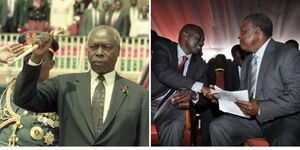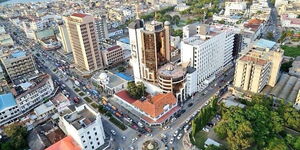Kenyans to Access SHIF Healthcare Services Using IDs From October
The government is set to do away with the National Health Insurance Fund (NHIF) cards from October this year.
Speaking during an interview on Spice FM, President William Ruto's advisor on health financing, Daniel Mwai, revealed that the new Social Health Authority (SHA) will not be issuing health insurance cards.
He noted that Kenyans will be using their National Identity cards to access services in the hospital.
Mwai explained that Kenyans already had many cards hence the need to use the ID card in accessing healthcare services.
On the other hand, he stated that Kenyans will be required to take up biometric verification at the hospital. This will be done to identify the patient and remove any loopholes for forged medical claims.
"Our expectation is that you will use your ID card. People are in the business of having too many cards.
"Once you go to the hospital with your ID card, the facility will already be known and the charge will be removed from your card. The biometrics will uniquely identify you," he stated.
Therefore, in facilitating the verification process, he stated that Kenyans would need to have the biometrics verified, especially for those who were in the NHIF cover.
The verification can be done at various NHIF offices with the government also set to release biometrics devices to Community Health Promoters.
SHIF registration commenced on July 1 and can be done through the SHA website - www.sha.go.ke or through USSD code *147#.
Other Changes
Unlike SHIF, Kenyans will be able to go to any hospital of their choice for treatment. Under NHIF, Kenyans were required to choose the facilities where they would be treated.
Mwai also confirmed that SHIF will also cover treatment in high-end private hospitals. However, expenses will only be met per the stipulated tariff.
"In the past, we had a lot of issues with the choice of facilities. You had to choose the facilities where you had to go. Where we are moving to, is a different environment altogether. Kenyans will choose the facilities where they will be going.
"They will also be able to know the benefits they are entitled to and the money they will be charged from the card even before they go to the hospital," he stated.
On the other hand, he noted that private pharmacies will also be accepting SHIF payments should they be put under the facilities in the new insurance scheme.
On most occasions, Kenyans are usually asked to buy drugs from private pharmacies if the hospitals lack the medicines.
Nonetheless, the payment will only be made as per the published tariffs.












